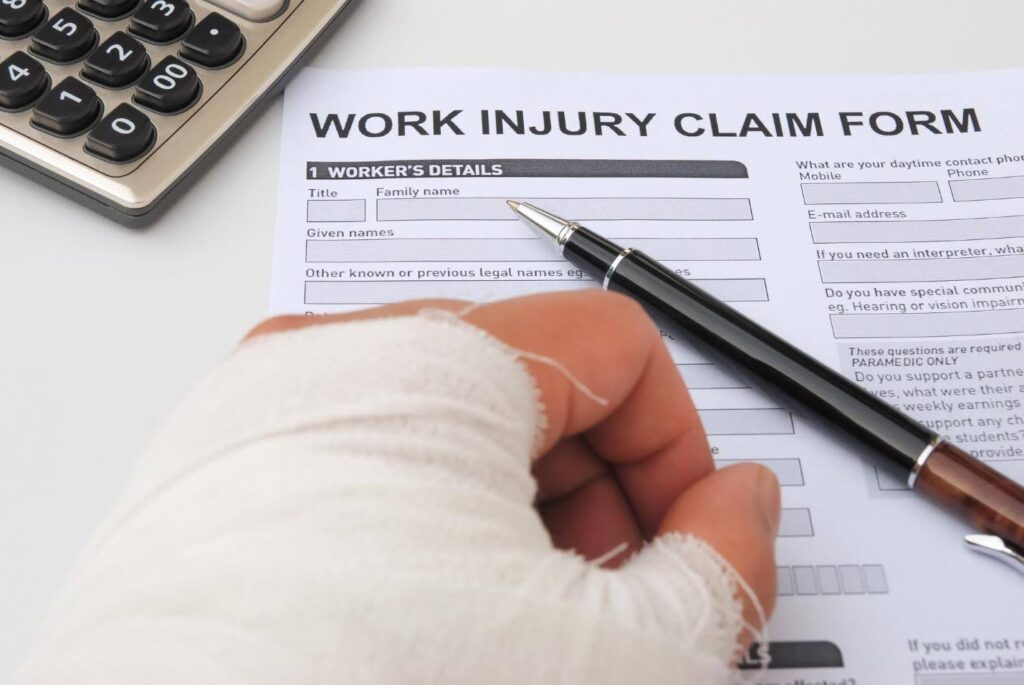Work injuries can seem very overwhelming. Workers must not only deal with the injury itself and the related healing process, but they also have to work with their employer to get workers’ compensation benefits. Even getting medical care that workers are entitled to receive can be confusing and overly complicated. Following the right next steps after a work injury is critical if a worker wants to get workers’ compensation benefits, but determining what those steps are can be difficult. If you have been injured in a work-related accident, you may want to follow the steps below. You might also want to contact a Michigan workers’ compensation attorney. Call Bruce L. Weider, PC at (734) 485-0535 for more information or to schedule an appointment.
Understand Your Rights Before a Work-Related Accident
Knowing what to do after a work-related accident is important, but having that information before an accident happens may be even more useful. Workers may want to familiarize themselves with their rights to workers’ compensation under Michigan law.
For instance, workers may benefit from understanding the benefits available to employees who are injured in the course of their job-related duties under the Michigan workers’ compensation program. The Michigan Department of Labor & Economic Opportunity states that the following benefits may be available to workers after an accident:
- Medical care
- Wage loss benefits, including the right to prompt payment after the date of the injury
- Vocational rehabilitation options
- Options for lump sum payments
While the general rule is that most employers are required to carry workers’ compensation insurance, making benefits available to many employees, some workers will not be eligible for benefits. Certain small employers (employing 1-3 people) may not be required to provide workers’ compensation. Additionally, if a worker is injured in the workplace as a result of breaking a workplace rule, those workers may not be eligible for workers’ compensation.
Get Emergency Medical Attention
A worker’s health and safety should be the top priority after a work-related injury. While communicating with an employer after an accident is important, getting medical care right away in an emergency is even more critical.
If a worker gets medical care and they suspect that the injury is work-related, they should report that to the medical care provider. This type of report will help build the record of the injury, and it will help ensure the correct entity is billed for the costs of the medical care.
Notify Your Employer About the Injury
If the injury is not an emergency or the worker has already received emergency care, the next step is to provide a notification of the injury to their employer. Waiting too long to provide notice can undermine a workers’ compensation claim. In addition, the longer a worker waits to report the injury, the longer the delay in obtaining coverage for the costs of medical care. An employer or their insurer might also argue that there is no connection between work and the injury if a worker waits too long to report it.
Workers have 90 days in Michigan to report injuries resulting from accidents at work. The report does not have to be in writing, but it may be a good idea to make a written report. Workers might want to include the following in their report:
- Description of the accident
- Date and time the accident took place
- Whether anyone saw the accident
- Description of the general nature and extent of injuries
A written report provides a paper trail regarding the injury and ensures that important details are preserved. Be sure to retain a copy of the report for your records.
Document the Scene
If possible, it may be a good idea to take photos and videos of the area where the accident occurred. Photographic evidence can be very helpful for a worker’s case as a whole, but it can also be useful to explain to an employer or lawyer how the accident occurred and why. In some situations, if a third party was responsible for the accident, the worker might have a claim against that entity in addition to receiving benefits from workers’ compensation. Bruce L. Weider, PC, may be able to assist with that more complicated situation.
Workers should also take note of who else may have witnessed the accident. Obtain their contact information so they can be contacted to provide a statement later, if necessary.
File a Workers’ Compensation Claim
When an employee is injured on the job and reports the injury to their employer, the employer often fills out and files the claim form with the Workers’ Compensation Disability Agency on their behalf. However, in some cases, the employer may not file the claim form. In those instances, the employee will need to file a workers’ compensation claim form themselves to ensure they receive the appropriate benefits.
Employers are required by Michigan law to provide prompt payment of lost wage benefits starting the 14th day after the worker provides notice of disability or death. Compensation should also be paid weekly. However, some employers may not start benefits as they should, and workers might need to assert a claim to obtain benefits.
Time Limits for Filing Claims
Workers are required to report a work-related accident or injury to their employer within 90 days of the accident. Workers have up to two years from the date of the accident to file their claim against the workers’ compensation insurance, but they often should not wait that long. Any delay in benefits or medical care can have a substantial impact on workers and their families.
Appealing a Claim Denial
If the insurer denies a worker’s claim, or the employer disputes it is work-related, the worker has the right to appeal. They do that by filing an Application for Mediation or Hearing. This application is submitted to the Michigan Department of Labor and Economic Opportunity, Workers’ Disability Compensation Agency. Some cases are automatically assigned to mediation to help the parties informally resolve the dispute instead of having a hearing on the issue. In others. the case is referred to a magistrate, who will hear the case to resolve the dispute between the worker and employer’s insurance company.
Consider Hiring a Michigan Workers’ Compensation Lawyer
Having a lawyer help you with your claim may make the process feel less confusing and overwhelming. They may be able to notify you of your rights and obligations and help you meet any required deadlines under Michigan law. They may also be able to help investigate your claim, assist with arranging specialized medical care, and negotiate with your employer or your employer’s insurance company. Bruce L. Weirder, PC may be able to help an injured worker after a work-related accident. To learn more, contact our office by calling (734) 485-0535 today.






